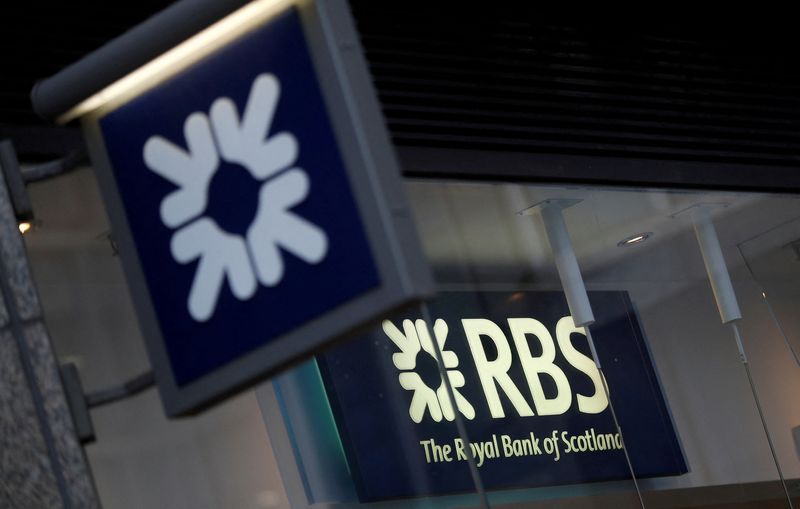
[ad_1]
 © Reuters. FILE PHOTO: Royal Financial institution of Scotland indicators are seen at a department of the financial institution, in London, Britain December 1, 2017. REUTERS/Peter Nicholls
© Reuters. FILE PHOTO: Royal Financial institution of Scotland indicators are seen at a department of the financial institution, in London, Britain December 1, 2017. REUTERS/Peter Nicholls2/2
By Sinead Cruise
(Reuters) – A former Royal Financial institution of Scotland (NYSE:) managing director is taking to the U.S. Supreme Court docket his bid to gather a whistleblower award of not less than $490 million from the U.S. authorities for reporting what he referred to as illegal conduct associated to mortgage-backed securities.
Victor Hong on Monday appealed a decrease courtroom’s ruling that discovered him ineligible for a whistleblower award below a 2010 federal regulation as a result of the U.S. Securities and Change Fee (SEC) handed alongside data he offered in 2014 to the Justice Division slightly than bringing its personal motion in opposition to RBS (LON:), now referred to as NatWest Group PLC.
A 3-judge panel of the New York-based 2nd U.S. Circuit Court docket of Appeals in July dominated unanimously in opposition to Hong, a veteran New York-based banker whose ideas helped federal businesses safe greater than $10 billion in settlements with RBS in 2017 and 2018.
Hong voluntarily reported what he referred to as illegal conduct associated to RBS’s valuation of mortgage-backed securities to the SEC, which then shared his ideas with the Justice Division, serving to federal prosecutors and the Federal Housing Finance Company (FHFA) safe settlements.
Hong has been pursuing compensation he has mentioned he’s owed below a program created below the Dodd-Frank Wall Road Reform and Shopper Safety Act, a regulation enacted in response to the 2008 monetary disaster. The measure authorizes awards price as much as 30% of the federal government’s restoration in “judicial or administrative actions” or “associated actions” introduced by the SEC.
RBS agreed to settle Justice Division and FHFA investigations over its gross sales of residential mortgage-backed securities within the run-up to the monetary disaster. The financial institution denied wrongdoing.
The SEC didn’t pursue its personal motion in opposition to RBS on this occasion.
An SEC spokesperson declined to touch upon Hong’s attraction.
The petition Hong filed on Monday asks the Supreme Court docket to think about what constitutes an “motion” throughout the SEC’s whistleblower incentive program.
Hong has argued that referring prosecution to different businesses based mostly on data offered by whistleblowers to the SEC must be included and that, with out a change to the regulation, the incentives for white-collar whistleblowers to report abuses within the monetary sector are vastly diminished.
The petition, offered by Hong to Reuters, mentioned “the present scheme is strongly discouraging to potential whistleblowers with vital data of violations, as a result of there is no such thing as a predictability of payout.”
“The higher a whistleblower’s data, the bigger the sanctions, the bigger the whistleblower award, and the better the self-interested motivation for the SEC to take enforcement actions that it has conveniently positioned outdoors of Dodd-Frank’s attain,” it added.
Hong’s lawyer, Richard Corenthal of the agency Archer Byington Glennon & Levine, mentioned the 2nd Circuit’s choice, if allowed to face, successfully undermines Dodd-Frank’s “objective” and the aspirations of Congress.
“Why ought to somebody working within the finance business come ahead to report securities fraud, on the threat of being fired and jeopardizing their careers and households, when the SEC and different federal businesses can simply use the data to acquire a worthwhile monetary settlement after which deny the whistleblower an award?” Corenthal requested.
RBS was not a celebration to the case.
[ad_2]